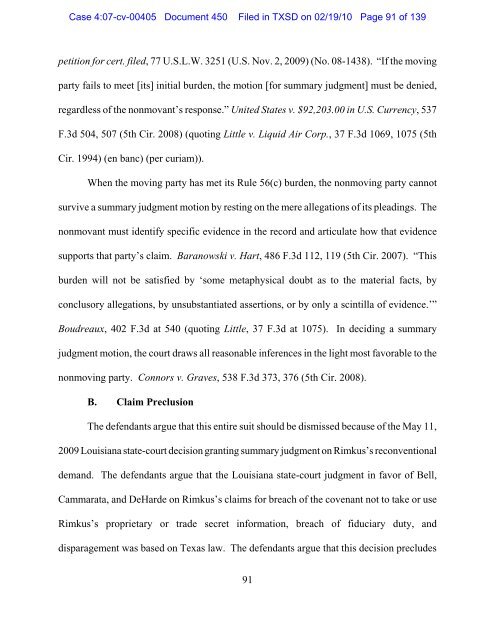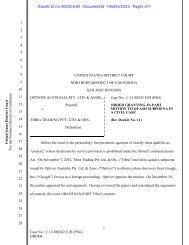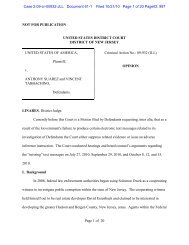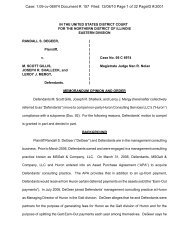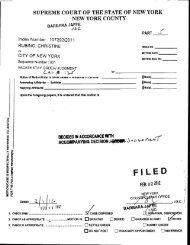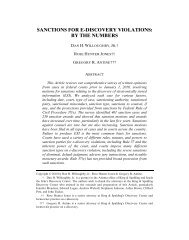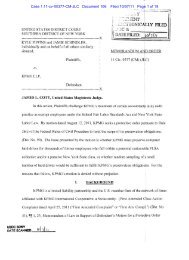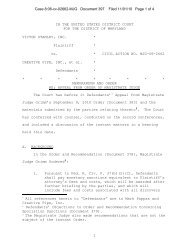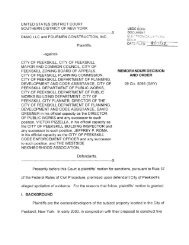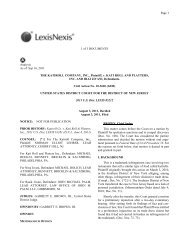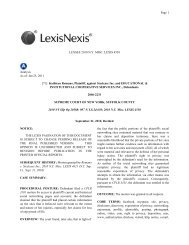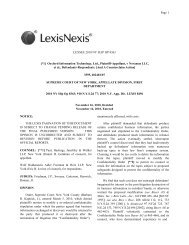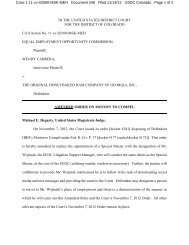Rimkus Consulting Group Inc. v. Cammarata - Ballard Spahr LLP
Rimkus Consulting Group Inc. v. Cammarata - Ballard Spahr LLP
Rimkus Consulting Group Inc. v. Cammarata - Ballard Spahr LLP
You also want an ePaper? Increase the reach of your titles
YUMPU automatically turns print PDFs into web optimized ePapers that Google loves.
Case 4:07-cv-00405 Document 450 Filed in TXSD on 02/19/10 Page 91 of 139<br />
petition for cert. filed, 77 U.S.L.W. 3251 (U.S. Nov. 2, 2009) (No. 08-1438). “If the moving<br />
party fails to meet [its] initial burden, the motion [for summary judgment] must be denied,<br />
regardless of the nonmovant’s response.” United States v. $92,203.00 in U.S. Currency, 537<br />
F.3d 504, 507 (5th Cir. 2008) (quoting Little v. Liquid Air Corp., 37 F.3d 1069, 1075 (5th<br />
Cir. 1994) (en banc) (per curiam)).<br />
When the moving party has met its Rule 56(c) burden, the nonmoving party cannot<br />
survive a summary judgment motion by resting on the mere allegations of its pleadings. The<br />
nonmovant must identify specific evidence in the record and articulate how that evidence<br />
supports that party’s claim. Baranowski v. Hart, 486 F.3d 112, 119 (5th Cir. 2007). “This<br />
burden will not be satisfied by ‘some metaphysical doubt as to the material facts, by<br />
conclusory allegations, by unsubstantiated assertions, or by only a scintilla of evidence.’”<br />
Boudreaux, 402 F.3d at 540 (quoting Little, 37 F.3d at 1075). In deciding a summary<br />
judgment motion, the court draws all reasonable inferences in the light most favorable to the<br />
nonmoving party. Connors v. Graves, 538 F.3d 373, 376 (5th Cir. 2008).<br />
B. Claim Preclusion<br />
The defendants argue that this entire suit should be dismissed because of the May 11,<br />
2009 Louisiana state-court decision granting summary judgment on <strong>Rimkus</strong>’s reconventional<br />
demand. The defendants argue that the Louisiana state-court judgment in favor of Bell,<br />
<strong>Cammarata</strong>, and DeHarde on <strong>Rimkus</strong>’s claims for breach of the covenant not to take or use<br />
<strong>Rimkus</strong>’s proprietary or trade secret information, breach of fiduciary duty, and<br />
disparagement was based on Texas law. The defendants argue that this decision precludes<br />
91


